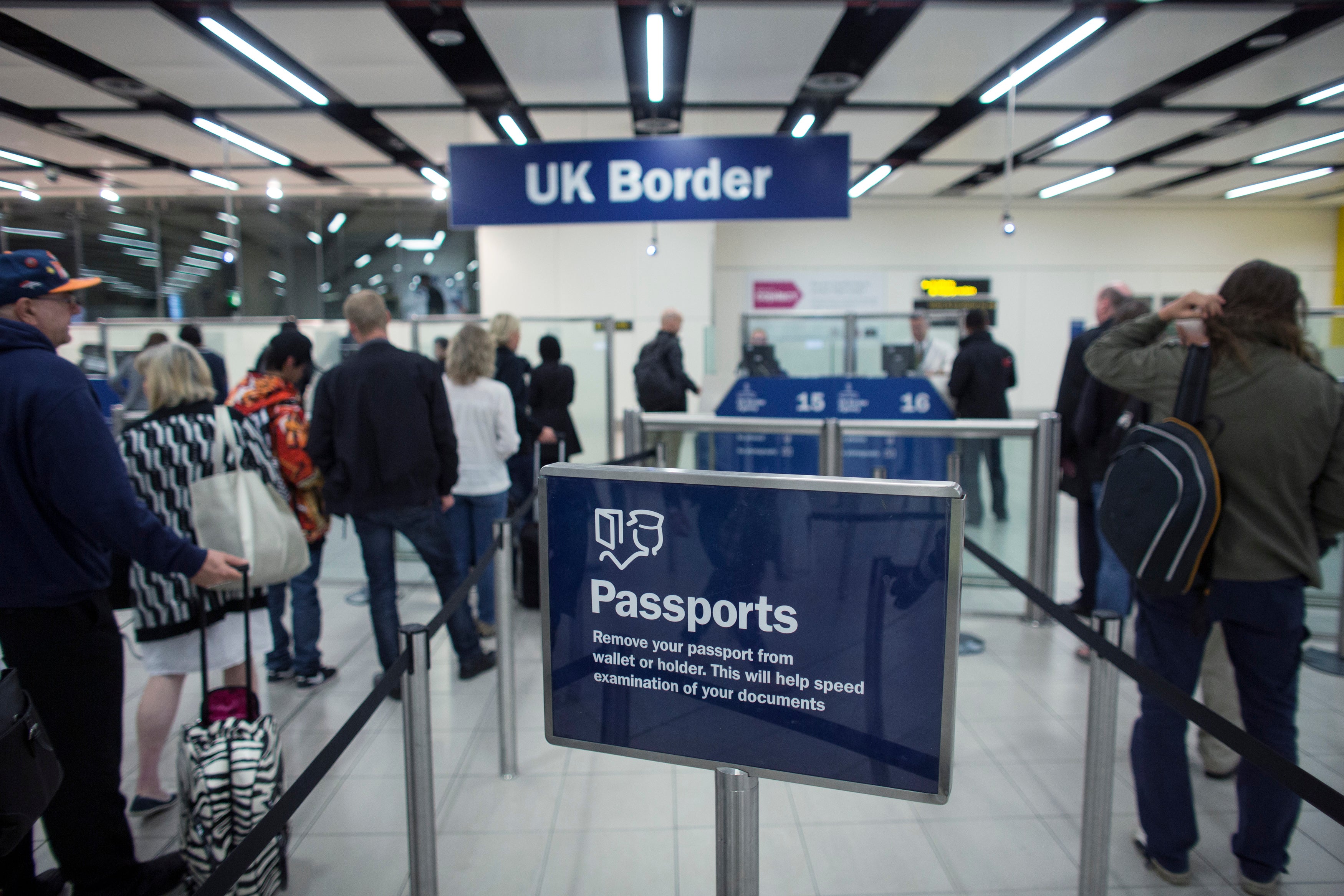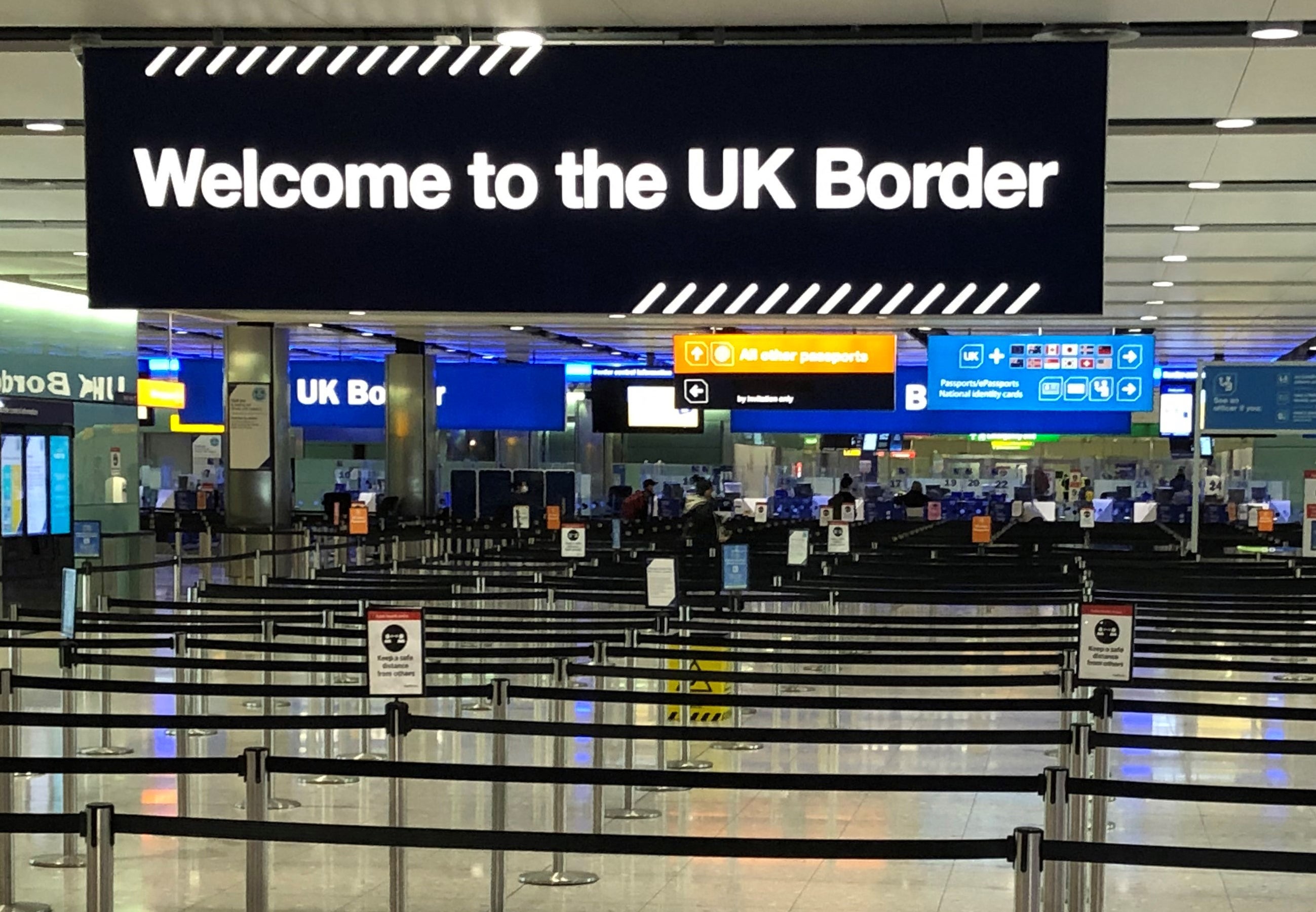UK rollout of eVisas hit by problems facing foreign nationals and refugees just two weeks in
Exclusive: Millions have been forced to change to a digital immigration system in 2025 but the transition to the eVisa has led to problems for foreign nationals and refugees
Your support helps us to tell the story
From reproductive rights to climate change to Big Tech, The Independent is on the ground when the story is developing. Whether it's investigating the financials of Elon Musk's pro-Trump PAC or producing our latest documentary, 'The A Word', which shines a light on the American women fighting for reproductive rights, we know how important it is to parse out the facts from the messaging.
At such a critical moment in US history, we need reporters on the ground. Your donation allows us to keep sending journalists to speak to both sides of the story.
The Independent is trusted by Americans across the entire political spectrum. And unlike many other quality news outlets, we choose not to lock Americans out of our reporting and analysis with paywalls. We believe quality journalism should be available to everyone, paid for by those who can afford it.
Your support makes all the difference.Foreign nationals have already faced problems with the government’s rollout of electronic visas just two weeks in, with some travellers having difficulty boarding UK-bound flights and refugees left without any way to prove their immigration status.
Millions of people living in the UK saw their immigration documents expire on 31 December 2024 as the Home Office transferred to a digital system. Foreign nationals now have to rely on digital records of their status to travel to the UK, prove their right to work, or rent a flat.
But only two weeks in, people have already reported problems trying to fly back to the UK, with travellers coming from Germany, France, Malawi, Egypt and Cyprus all struggling to prove their immigration status to foreign airport staff.
Refugees in the UK are also having problems connecting their passports to their online visa, digital rights groups have warned. Some new refugees, who face imminent eviction from Home Office accommodation, have also been left waiting for their eVisa accounts, which they need to get set up a bank account, claim benefits, or rent housing.

Chisomo Kalinga, 43, an academic at the University of Edinburgh, was travelling back from a research trip in Malawi when she found herself struggling to prove her eVisa status. She told The Independent: “When I got to the check-in counter [in Malawi], they said we don’t have anywhere to get your eVisa. It was extremely stressful. I had the share code printed out and they said they couldn’t do anything with that.
“I ended up getting someone to give me their phone and I logged into gov.uk to show my eVisa and they let me on the plane. It took me half an hour to get it up because the internet was so slow. I was left with three minutes before they were threatening to close the gate.
“They knew what the eVisa was, they knew the change, but they said they had no way of accessing it. It didn’t come up on their systems that there was a visa attached to the passport.”
She said that she has already faced problems in the UK as well, with her GP not accepting her share code, a code that validates someone’s immigration status to their employer or service, and asking her to email them a screenshot of the visa.
Have you faced any problems with your eVisa? Contact holly.bancroft@independent.co.uk
Another traveller told the3million, a representative group for EU citizens in the UK, about a flight from Paris to the UK on 1 January where border officers didn’t have access to their eVisa and would not accept a share code. They had to log in to their online account on their phone to satisfy the officials.
Before the transition, the Home Office assured visa holders that airline carriers would have access to automated status checks as part of their check-in procedures, and if that failed carriers would also be able to access the government checking website themselves.
Home Office officials said they have done extensive training with airline carriers and have set up 24/7 helplines for carriers and foreign border force to easily check someone’s visa status.
Mark Seymour, who works for refugee charity The Gap in Wales, said that while eVisas were a good step forward he had also come across problems with the roll-out. He estimated that in Newport around 20,000 people still need to apply for their eVisas.
He explained: “There are now no Biometric Residence Permits being issued to new refugees, and they are meant to get an eVisa instead. However there are several new refugees who have been given eviction letters from their Home Office accommodation but they don’t yet have an eVisa.”
Mr Seymour added: “If you ring the eVisa resolution centre you get an ‘I’m sorry our queue is full call back later’.” The Home Office said it is monitoring the average wait times for the resolution centre and working to resolve any problems.

The charity is also supporting two unaccompanied asylum-seeking children who have been granted refugee status, and set up with eVisas by the Home Office. However, their eVisas have been set up with Home Office email addresses and numbers that have not been forwarded to the refugees, leaving them with no way of logging in to their account, Mr Seymour said.
Sara Alsherif, from the Open Rights Group, said they had also seen people contacting them for help with a range of similar problems. “In the case of one family, everyone has got their eVisas apart from one child. Since September they’ve been waiting for this child’s eVisa account and they can’t apply for school, benefits etc, without proving that their child has a right to be in the country,” she said.
In another case reported to the3million citizens rights group, an eVisa applicant has had her details merged with another completely random person.
Her advisor wrote in saying: “She cannot prove her status in the UK, we’re actively trying to resolve this before it becomes a problem for her employer. This is a major GDPR breach. The third party has access to all of our client’s personal information including her passport details, telephone number and email address.”
The Home Office would not comment on individual cases. A spokesperson said: “We are listening to concerns people might have and are working closely with carriers and international stakeholders to ensure the rollout of eVisas is smooth.
“eVisas bring significant benefits. They cannot be lost, stolen, or tampered with, unlike a physical document, and also increase the UK immigration system’s security and efficiency.”

Join our commenting forum
Join thought-provoking conversations, follow other Independent readers and see their replies
Comments